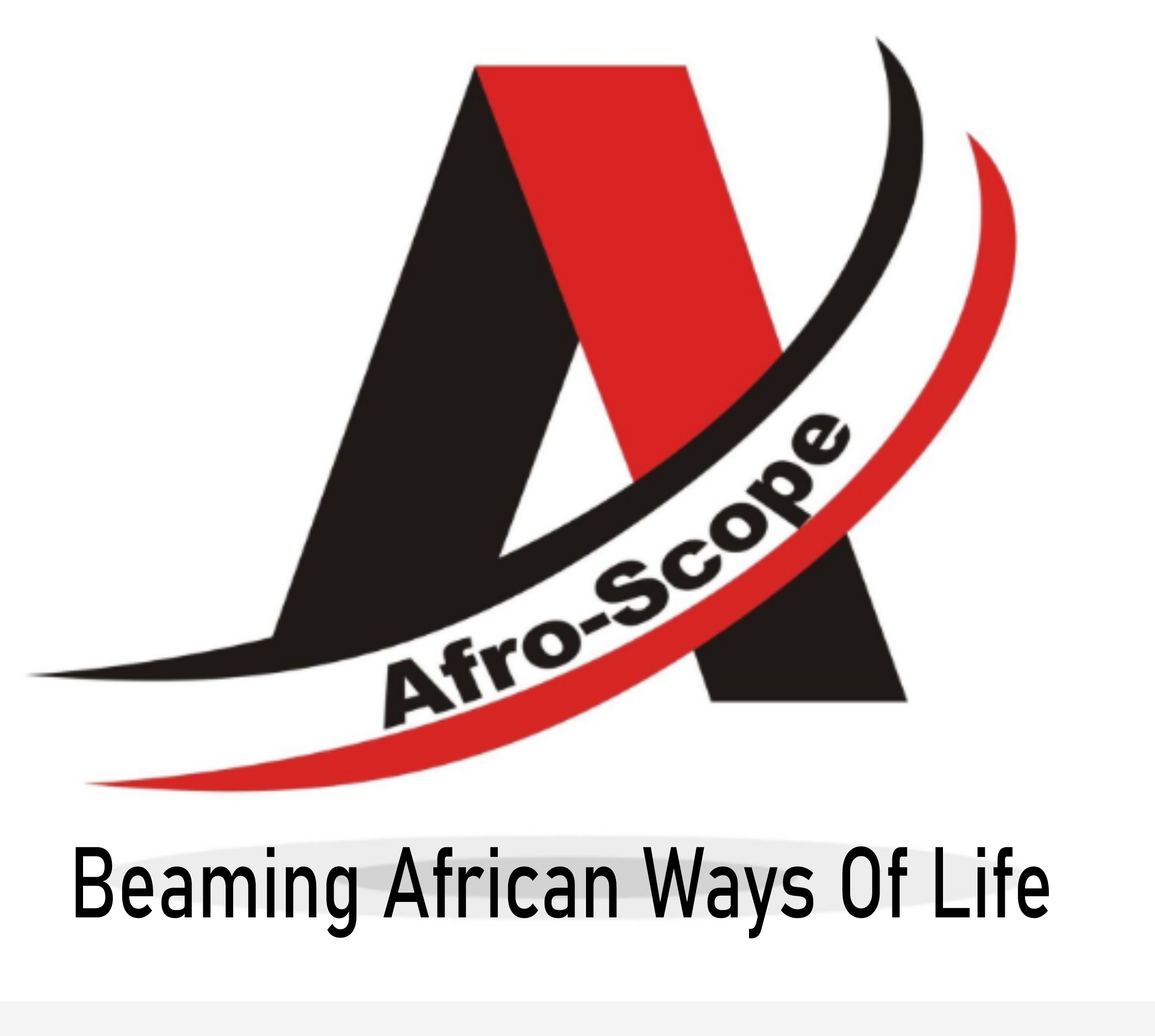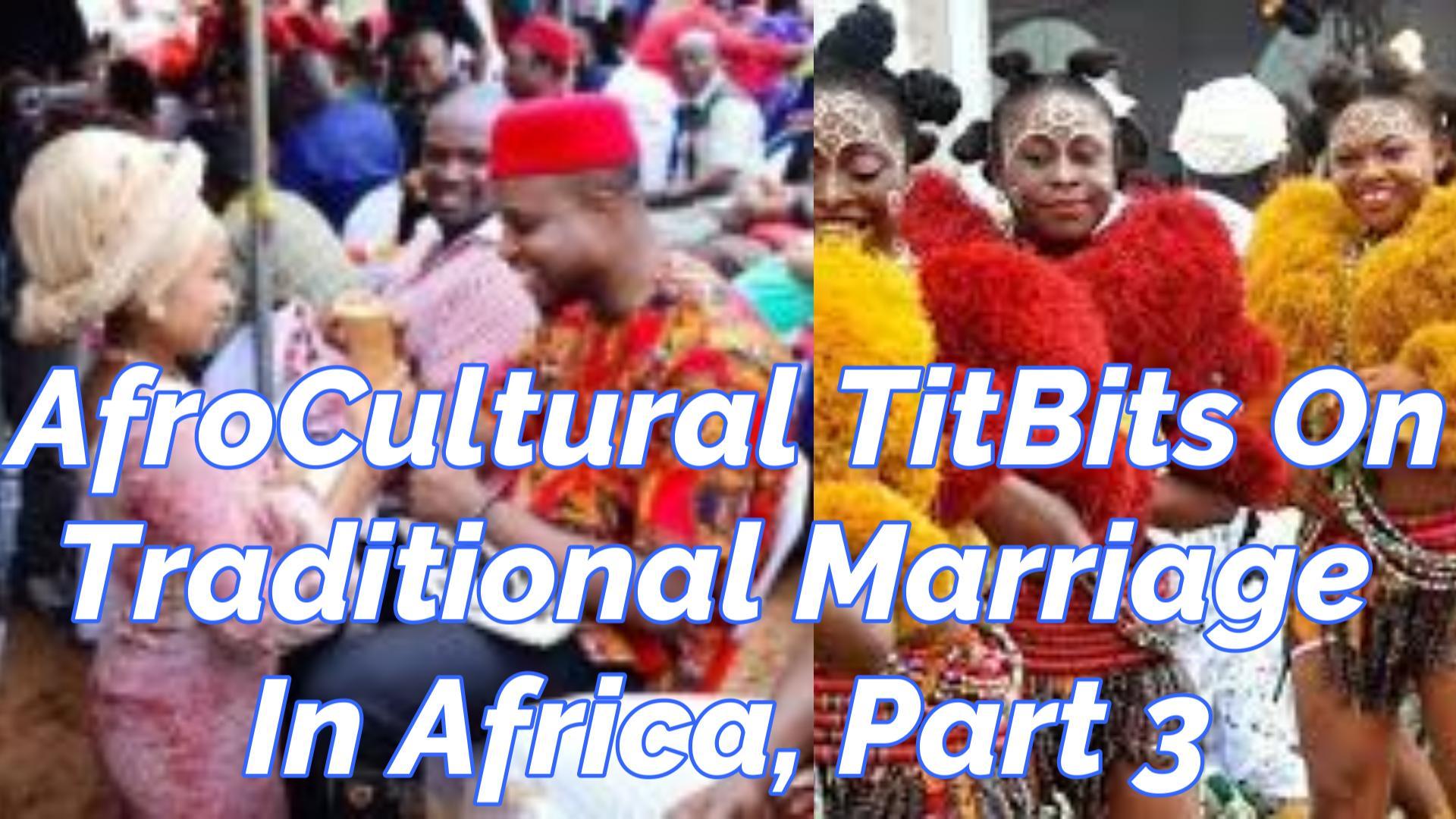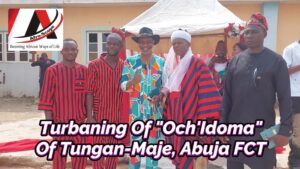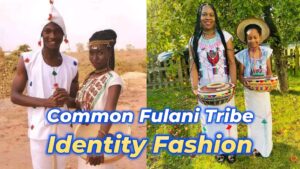September 9, 2022
THE COMPLEX PROCESS OF A TYPICAL TRADITIONAL MARRIAGE
Greetings, folks!
This is Afro-Scope, and I am Harry Agina. I bring you edition 3 of “AfroCultural Titbits” on Traditional Marriage In Africa. Our traditionalist, Udoakpuenyi, left us in the last edition with the mama and papa of Ikechukwu, who is otherwise known as Ik for short. The mama made a not-so-traditional melodramatic move to court a young lady for her son, Ik. I have the link to that for ya, at the end of this, as usual.
My own question at the end of that last edition was, what is the correct traditional way to do what Ik’s mom did in her melodramatic style? How does the correct courting of a damsel for a bride happen in a typical Igbo traditional marriage? The answers are here, on this edition. Udoakpuenyi takes us through the process of a typical traditional marriage in Igbo tribe of southeast Nigeria. It is a journey in four or five basic steps. Here’s Udoakpueny with the details for ya:
THE PROCESS OF A TYPICAL AFRICAN TRADITIONAL MARRIAGE:
Welcome once again to this series. I am Udoakpuenyi, the man with the regular titbits for you on Afro-Scope.com. As I said in the last edition, the courtship move by Ik’s mother was actually a leap of faith. Neither she nor her husband could tell if their son Ik would like the young lady. They didn’t know if the young lady would accept Ik’s hand in marriage either. And, mind you, Ik already had a Caribbean sweetheart. His mom’s move to catch a seemingly well-mannered and fine-looking young lady for him was peculiar. Parents do not approach proposed brides so directly and offer bride price that way to the lady herself. Ik’s mom was just being melodramatic, as Harry has described it. But the tradition is something not too far from mama’s melodrama. Let’s take the entire process, step by step for you, thus:
(1) STEP ONE—KNOCKING ON THE DOOR: I will start with a fact that, in most African societies, it is considered out of place for a woman to propose to a man, no matter how she desires marriage. Any woman who does this would usually lose self-respect and dignity. In a typical traditional instance, the parents of a young lad make the move to the parents of the young lady, and not directly to the lady herself, as Ik’s mama did. They take some palm wine with them, to present to the girl’s parents, and declare interest in their daughter, on behalf of their son. Some Igbo sections call it “Iku aka na uzo,” meaning, “Knocking on the door” of the bride, to seek her hand in marriage. The father of the girl invites his extended family, the Umunna (kindred), and offers them the palm wine. That’s when he introduces the visitors to them, and announces the visitors’ intention. This can be either for outright marriage, or for betrothal (engagement). The betrothal can be for two consenting adults, for future marriage, or betrothal of under-aged girl to a boy of her age, or to an older man. The marriage comes much later at the ripe age of the girl, as explained in the previous edition.
In some communities in Igbo land, such as the Ezeagu Area of Enugu state, this betrothing process is called “Mmanya nnecheanya.” “Mmanya” is the palm wine, and “Nnecheanya” means introduction to, and investigation of the land of the proposed bride. After this, the boy (man) and girl (lady) are free to visit each other’s homes without fear of violating rules. But they are not allowed to sleep together until they are officially married.
A lot of betrothing happens between families who are friends, who want to cement their old relationship to the next generation. Getting their children to inter-marry is one good way to keep that relationship perpetual. For this, and other reasons/factors, match-making is a common feature in traditional African societies. A Ghanaian website, Kente Cloth and Tourism, has it that, in Islamic traditional marriage in Ghana, West Africa,the choice of partners is the exclusive privilege of parents. We are still to further investigate the information. According to this source, the matter of compatibility between the proposed spouses does not matter. The spouses may disagree all they want; but their opinions are irrelevant. They get married if their parents agree with the union. This represents the kind of ancient extremes that are now being discouraged. And, naturally, it is gradually fading down, and eventually out, in contemporary times. Some of the traditions are being modified, gradually evolving the culture to reject elements that are unacceptable in modern Africa.
(2) STEP TWO—INVESTIGATION ON BOTH SIDES: After the “Knocking-on-the-door” first step, comes the stage of character investigation. The groom’s family investigates the character of the bride and her parents, if they were not familiar. The bride’s family does the same on the groom and his family. There is always an intermediary in some sections of the Igbo land, such as Nnewi town, in Anambra state. This is where I, Udoakpueny, hand over to Harry, to take us through, because Nnewi is his home town.
Indeed, I am from Nnewi, and I do know the deal. I am a progressive traditionalist myself, despite my growing up in the USA. Out of sight is not out of mind for me. I do keep tab on my origin, and I did actually write some of my graduate theses on the position of the African peoples and the African Culture in the global community. It was from the perspective of InterCultural Interaction between Africa and the north Americans, in particular. It’s also the basic interest and focus of my weekly TV program in Texas, the “AfroScope.” So, here’s the gist of a typical traditional marriage in my town, Nnewi, and the environs. The ‘environs’ are quite an expansive region with commonalities.
Like Udoakpuenyi, I do have my own personal experience to boot! Very often, there is an intermediary in the union. The intermediary is known as “Onye nfuta.” This means ‘the person who discovered the girl,’ and suggests or recommends her as a bride. Mostly, the “Onye-nfuta” is from the community of the lady. He or she introduces the lady to the groom and his family, as a middle man/woman, if you will. The “Onye-nfuta” actually kind of vouches for the character of the lady and her family. After the “Knocking-on-door” stage, the groom’s family awaits a ‘word’ from the middleperson (Onye-nfuta). The ‘word’ is whether the bride’s family has decided to accept the union proposal, or not. When this happens and it is in the affirmative, the date for the next stage is set. In the past, this tradition of “Onye-nfuta” was actually sacrosanct, even if the meeting of the spouses was direct. In other words, even when the proposed spouses met each other on their own, somebody is still appointed as the intermediary, just to fulfill the tradition. In such situation, the “Onye-nfuta” practically becomes an investigator. He has to verify the integrity of the proposed bride and her family. When he pronounces to the public that he vouches for the bride, it has to be based on his research work, since he didn’t really know the girl.
- STEP THREE—PAYMENT OF BRIDE-PRICE: Just the parents of the groom and a couple or so of the ‘Umunna’ make the trip to the bride’s home to pay the bride price. They are received by the parents of the bride, and a few members of their kindred (Umunna). The ceremony at this point is not elaborate. The two families ceremoniously haggle over the price to be paid for the bride. It’s all done in jolly good atmosphere and fun mood, with some moderate feasting. Some sections of Igbo land have modified some ancient traditions for the better. Nnewi and her environs are among such progressives.
In the past, the brides were literally sold to the grooms for substantial sums. It is now mostly more like a mere preservation of the tradition, than actually charging the prices or selling and buying the damsel. Just a single dollar equivalent is now enough to fulfill the tradition and keep it going. In my Nnewi town, for instance, the groom’s people would still go ahead and offer some tens, or hundreds of thousands, or even millions of naira. This is a symbolic mark of respect, signifying that the bride is worth much wealth. But the bride’s people would only take a hundred naira, which is worth far less than one American cent. They return the rest of the huge money to the groom’s family. Typically, a member of the bride’s ‘Umunna’ (kindred) makes a speech, to the effect that they are returning the money because they do not intend to sell their daughter to the groom. I had the privilege on a trip to Nigeria once, to do the talking myself during the marriage of my elder brother’s daughter. I actually made a joke that I returned the money to the groom so that I would have the moral grounds to kill him if he ever mistreated my niece. “If we sell my niece to you,” I said, “then you may believe that she is now your property to treat as you wish. It ain’t gonno happen. I would kill you first, bro!” I concluded, drawing some loud laughter of cheers from the audience.
Again, there are Igbo communities, or individuals, who still do accept large sums of bride-price in Igbo land. Mostly, this is now common only among poor families who do need the help, and especially when the groom or his family is wealthy. Naturally, if the families of both the bride and the groom are on equal or comparable economic footings (either poor or rich), then no huge money is expected or paid.
- STEP FOUR—IGBA NKWU: Now, this is the real grand event, the grand-finale! This is when the groom and his family do what is called “Declare Surplus” in local parlance. This means to feast and wine the peoples (kindreds) of both uniting families, and their friends from far and near. All expenses are paid by the groom and/or his family. The wealthier the groom, the more “surplus” he declares, to the feasting merriment of the people. Such are the events where you often find quite some drunks in the community acting orderly-disorderly, if you catch my drift. They would misbehave a little, by talking too much rubbish, for instance. But tradition demands that they generally know not to be drunk enough to really mess up in somebody’s traditional marriage celebrations.
Sometimes, however, this stage 4 is merged with stage 3. The bride-price is paid on the same day as the “Igba-nkwu” (final marriage ceremony), to save time. Separating them is often preferred, for the full joyous embellishment of the whole traditional process. It gives the people more chances to celebrate the union. People look forward to them. Combining the two stages is often done only when there is a good reason to hurry things up a little.
Now, this is where I hand you back to Udoakpuenyi, to continue the journey. I have taken you through some basic generalities of the process. Udoakpuenyi will take us through the rest of his story about the specific process of his nephew, Ik. You may recall my statement in edition one, that we left the best for last. That’s what we’re next getting into. We’re leaving the theoretical dogo-turench (long grammar), to some colorful practical stuff. Udoakpuenyi is taking us through the grand finale of the marriage of his nephew, Ik. You will see professionally filmed video of some of the traditions involved, courtesy of BBC Igbo Service. It features some entertaining cultural performances. And, of course, we shall get to the matter of divorce in Igbo culture.
But, sorry sir, sorry ma’am, all this will not happen now. They are for the next edition of Udoakpuenyi’s “AfroCultural Titbits” on Traditional Marriage In Africa. Let’s catch you on that rebound, please. Bye for now!
By Harry Agina and Udoakpuenyi.





Your comment is awaiting moderation.
Thankyou for all your efforts that you have put in this. very interesting info .